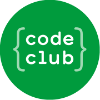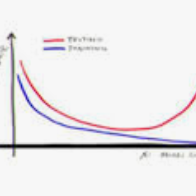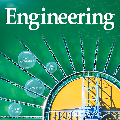Deep Neural Networks (DNNs) are increasingly being used in software engineering and code intelligence tasks. These are powerful tools that are capable of learning highly generalizable patterns from large datasets through millions of parameters. At the same time, their large capacity can render them prone to memorizing data points. Recent work suggests that the memorization risk manifests especially strongly when the training dataset is noisy, involving many ambiguous or questionable samples, and memorization is the only recourse. The goal of this paper is to evaluate and compare the extent of memorization and generalization in neural code intelligence models. It aims to provide insights on how memorization may impact the learning behavior of neural models in code intelligence systems. To observe the extent of memorization in models, we add random noise to the original training dataset and use various metrics to quantify the impact of noise on various aspects of training and testing. We evaluate several state-of-the-art neural code intelligence models and benchmarks based on Java, Python, and Ruby codebases. Our results highlight important risks: millions of trainable parameters allow the neural networks to memorize anything, including noisy data, and provide a false sense of generalization. We observed all models manifest some forms of memorization. This can be potentially troublesome in most code intelligence tasks where they rely on rather noise-prone and repetitive data sources, such as code from GitHub. To the best of our knowledge, we provide the first study to quantify memorization effects in the domain of software engineering and code intelligence systems. This work raises awareness and provides new insights into important issues of training neural models in code intelligence systems that are usually overlooked by software engineering researchers.
翻译:深心神经网络(DNNS)正越来越多地用于软件工程和代码智能任务。 这些强大的工具能够从大型数据集到数百万个参数,从大型数据集中学习非常普遍的模式。 同时,它们的巨大能力可以使其容易对数据点进行记忆化。 最近的工作表明,当培训数据集过于吵闹,涉及许多模糊或可疑的样本,以及记忆化是唯一的途径。本文件的目的是评估和比较神经编码情报模型中可记忆化和一般化的标准化程度。它旨在就记忆化会如何影响在代码情报系统中的神经模型的学习行为提供深刻的洞察力。为了观察模型中的记忆化程度,我们在原始培训数据集中添加随机噪音,并使用各种度量度来量化噪音对培训和测试的各个方面的影响。我们评估了一些基于爪哇、Python和Ruby Codeble Informication的状态神经代码智能模型和基准。我们的成果突显了重要的风险:数百万个可训练的参数使得神经模型的可感知性模型有可能成为模型的模型。 Wereal as main strain ex form form exmation to exmation to laftmation to main fore fore dal deal deal dalmmmmexmmmation foldemodestrationsmuslence foldestrationsmusm slence to dismmmmmusal dism sal disal disal dismusal disal.




